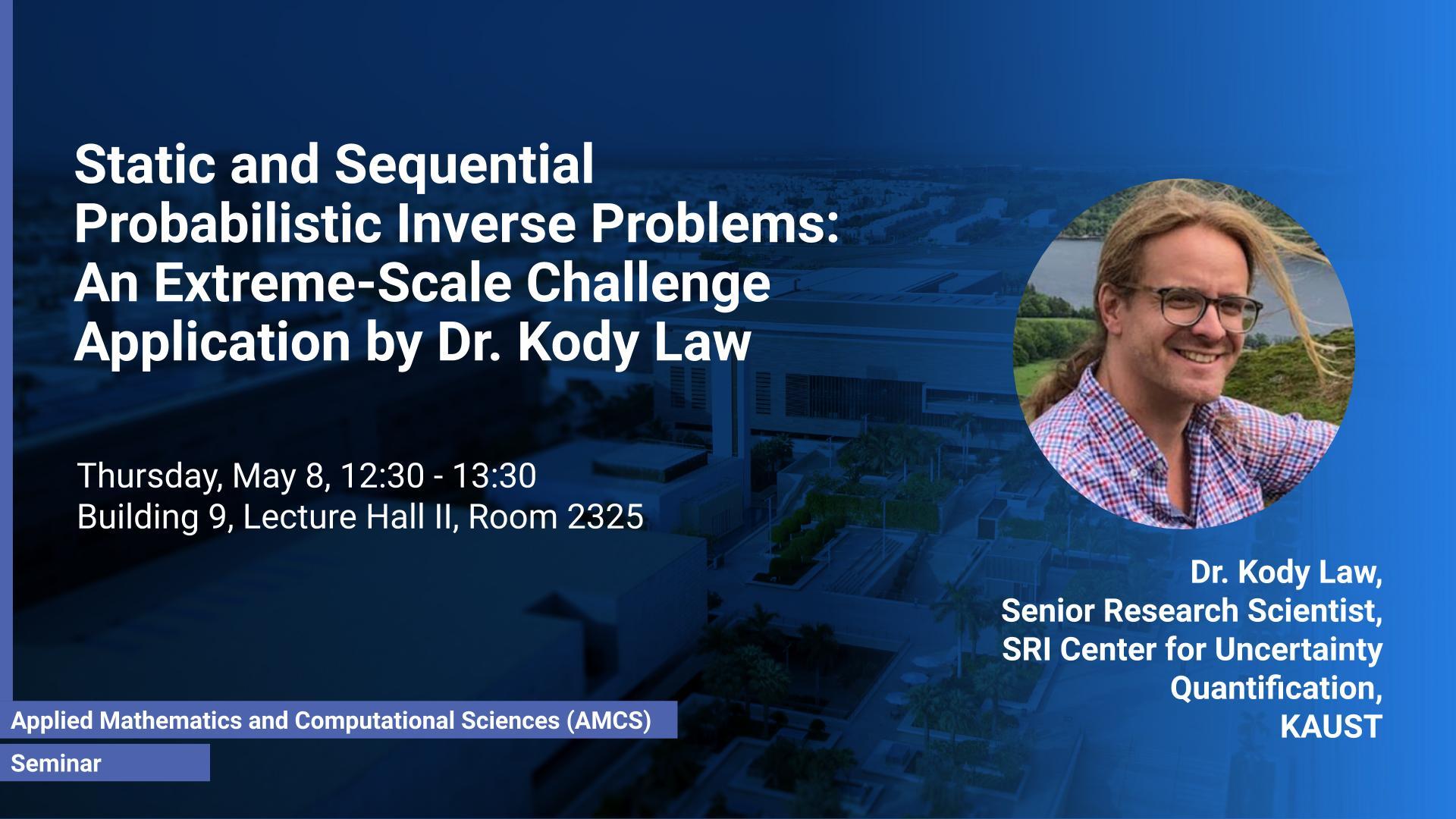Event Start
Event End
Location
Abstract
In many Computational Science and Engineering applications, uncertainties in model, parameters, and initial condition, in concert with increasing computational power, have lead to an increasing interest in probabilistic solutions of large-scale problems. Even crude approximations of the probabilistic solution require many tens of deterministic solves and accurate ones often require thousands or millions. It is a central task of Computational Science going forward to balance various sources of error and uncertainty in an optimal way and simultaneously adapt computational algorithms to scale with emerging architectures and technology, in order to make the most of the resources at hand. Elaborate problems like the probabilistic inverse problem, which itself contains the probabilistic forward problem, justify and emphasize the need for exascale supercomputers and hence the need to migrate onto emerging computer architectures the major hierarchical algorithms of scientific computing such as FMM, H-matrices, FFT, etc.
This presentation concerns various levels of approximation of the solution of the probabilistic inverse problem, in both static and sequential cases. The ultimate aim is to perform inference on parametric fields, of space and/or time, in order to reduce uncertainties and improve predictive capabilities, for example the computation of quantities of interest such as outputs of the model or various expectations thereof. Examples of such fields include, but are not limited to, the initial state of fluid dynamics equations in the context of numerical weather prediction and oceanography, the permeability of subsurface multiphase flow in the context of oil exploration, or the forcing of a stochastic dynamical system in the context of molecular dynamics.
The first line of research which will be presented involves the development of new and improved Markov Chain Monte Carlo (MCMC) sampling algorithms which have dimension-independent convergence rates and are therefore efficient for high-dimensional (infinite, in principle) problems. The second line of research which will be presented involves elucidating the theoretical mechanism behind the signal-tracking stability of estimates arising from sequential algorithms. Finally, some current and future research directions will be discussed which follow from these results, combine insight from both directions, and incorporate algorithmic principles adapted to emerging architectures such as asynchronous performance-adaptive concurrency and minimal data transfers both at the inner (forward) and at the outer (inverse) levels. In particular, a multi-disciplinary project in progress at KAUST involves a new dimension-independent MCMC algorithm which utilizes a GPU-accelerated dense-symmetric matrix factorization algorithm and is hence adaptable to emerging architectures.
Brief Biography
Kody Law is a Senior Research Scientist in the SRI Center for Uncertainty Quantification at KAUST. He received his PhD in Mathematics from the University of Massachusetts in 2010, and subsequently held a position as a postdoctoral research fellow at the Mathematics Institute of Warwick University until he joined KAUST in 2013. During his short academic career, he has given more than 50 invited lectures around the world and published 37 peer-reviewed journal articles and book chapters in the areas of computational applied mathematics, physics, and dynamical systems. His current research interests are focused on inverse uncertainty quantification in high dimensions, i.e. on large(target extreme)-scale: data assimilation, filtering, and probabilistic inverse problems. In particular, a recently developing interest is in algorithmic adaptation to emerging architecture, in the context of forward and inverse uncertainty quantification applications.
Refreshments: Light lunch available @ 12:00 pm

